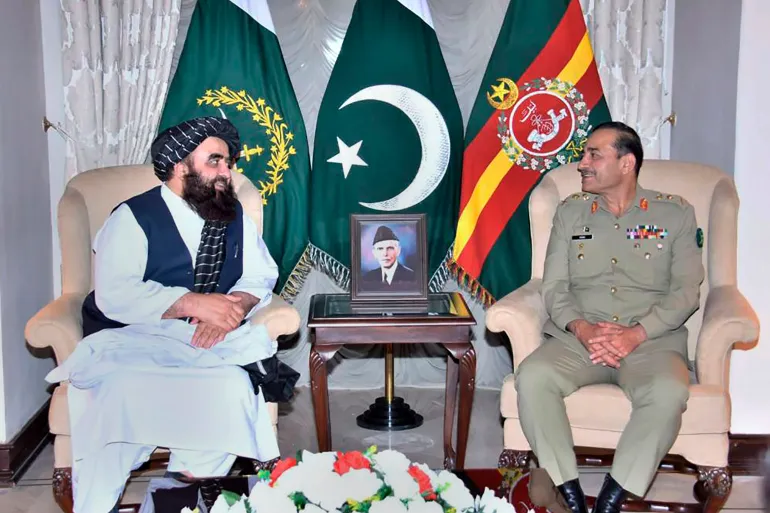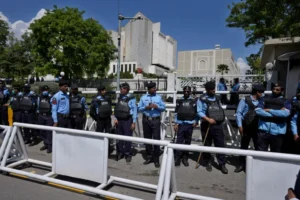The multi-faceted relationship between Pakistan and Afghan Taliban has been characterized with the phases of integration as well as antagonism. In August 2021, following the emergence of the Taliban rule in Afghanistan, Pakistan emerged as a key player, facilitating humanitarian aid and international diplomacy. Notwithstanding that, the recent developments have altered the course of this relationship, Pakistan seems to have been frustrated with the resurgence of terrorist activities inside Pakistan, emanating from the territory of Afghanistan.
Pakistan has been enduring the toll of terrorism connected to groups like Tehreek-e-Taliban Pakistan (TTP), a militant outfit associated with the Afghan Taliban, for a long time now. The TTP has been at the center of numerous deadly raids within Pakistan, that have resulted in substantial human causalities, besides staling of economic life.
Broken Promises and Heightened Threats
Taliban though boldly claimed that Afghan territories would not be left free for terrorism.
When the Taliban took hold of Afghanistan, there were expectations that Taliban would intensify the fight against terrorist organizations, like TTP. Taliban though boldly claimed that Afghan territories would not be left free for terrorism. However, such pledges were never fulfilled. lusted TTP attacks within Pakistani borders escalated further and are more rampant, now posing an enormous threat to the security of Pakistan.
This worsening development has caused an insufferable situation for Pakistan about its tolerance of TTP. Pakistan’s Government has repeatedly issued harsh condemnations and thundering demarches to the Taliban leadership, urging them to initiate needful actions against terrorism and start an aggressive campaign against TTP and other terrorist outfits, based on Afghan land.
The TTP Threat and Its Destabilizing Impact
TTP’s resurgence has become a grave security threat for Pakistan. TTP poses a danger to the stability and security of the country. Terrorists of TTP target both, civilians and the military with the end purpose being the collapse of the Pakistani state. This renewed reign of terror generates an atmosphere of fear and doubt, thus impeding economic development and advancement. The repercussions of TTP’s odious behavior are not confined to the security issues alone. This militant group also harms the country’s image at the international level. The name of the country is often wrongly described as a country supporting terrorism, even when it is also the biggest victim of terrorism. This negative perception can be obliterated with a decisive approach to quell TTP and prove the sincerity of Pakistan, as a partner in regional peace and security.
Also Read: Ties with Pakistan — IEA’s to-do list
Pakistan’s Security Imperative: Countering Militancy
Pakistan needs to muster its diplomatic strength to pressure the Afghan Government to keep fulfilling its counter-terrorism commitments.
Pakistan’s response to the TTP’s threat cannot be linear, it should rather be a multifaceted approach. There is a need to ensure sustained interaction with the Afghan Government that acts decisively against TTP. Pakistan needs to muster its diplomatic strength to pressure the Afghan Government to keep fulfilling its counter-terrorism commitments. This entails cooperation in matters such as intelligence sharing, joint patrols in border points and targeted operations against TTP refuge areas inside Afghanistan. Meanwhile, Pakistan also has to improve and reinforce its internal security measures. Effective border control, intelligence acquisition and well-focused policing operations are essential to dismantle TTP terrorism in Pakistan. Investment in providing counter-radicalization programs and conducting social development in areas, where militancy is germinating may aid in dealing with the root causes of extremism.
The International Community’s Role
The fight against terrorism in Pakistan is a war in which no one can fight solely. The international community is a vital factor in meeting the objectives of Pakistan’s ongoing efforts against terrorism and extremism. This forms the backbone of the cooperation mechanism and involves giving intelligence and technical support for the border security patrols and counter-terrorism efforts. Moreover, facing up to the humanitarian problem of Afghanistan can have a positive effect on the situation, preventing Pakistan as well as Afghanistan from becoming a recruitment ground for extremists. In addition, the international community must hold the Afghan Taliban accountable for their counterterrorism assurances. Failure to deal with this issue will increase the popularity of the TTP and other terrorist groups, and jeopardise regional stability.
A Diplomatic Tightrope Walk
Interestingly, Islamabad’s ties with the Taliban are a complicated blend of cooperation, rivalry, and ambiguity. While figuratively fighting TTP, Pakistan needs to pick the right way by keeping some level of engagement with the Taliban regime in Kabul to avert a total turndown in Afghanistan. There is a need for diplomacy and an ability to work around the constraints of the current situation.
Looking Ahead: A More Secure Future
The patience of Pakistan with the Taliban’s inability to take any action against terrorism is running out fast. TTP attacks that have greatly increased in the recent past are an indisputable example of the crucial need, to take immediate and sustained action. Pakistan should include deploying pressure on the Taliban, enhancing its own internal security, and inviting international help. Through a comprehensive and sustained commitment, Pakistan can hope to accomplish peace and stability in the short term in the region.
The opinions shared in this article reflect the author’s personal views and do not necessarily align with the institution’s official stance.




